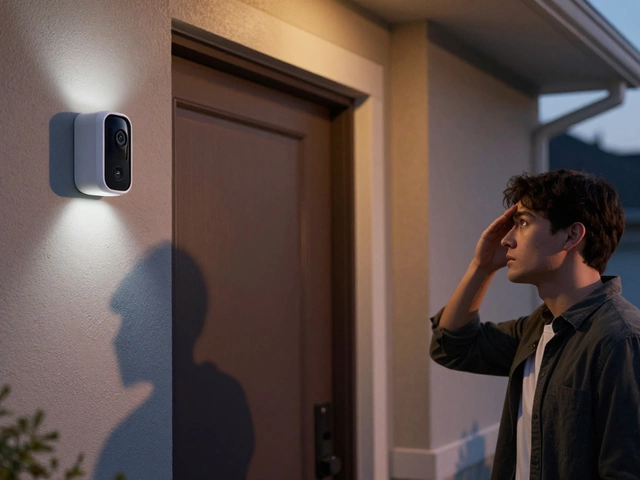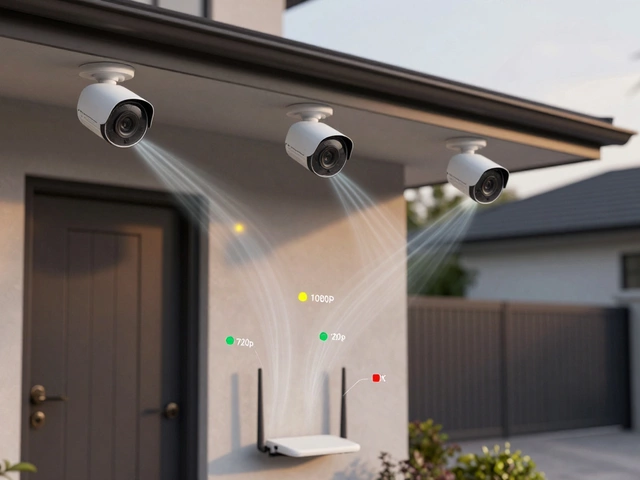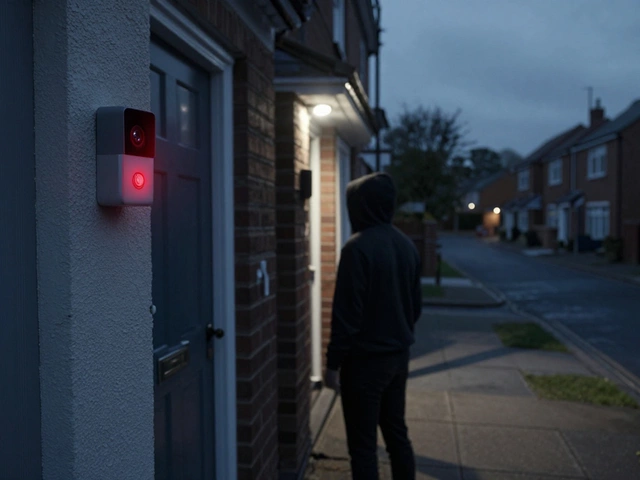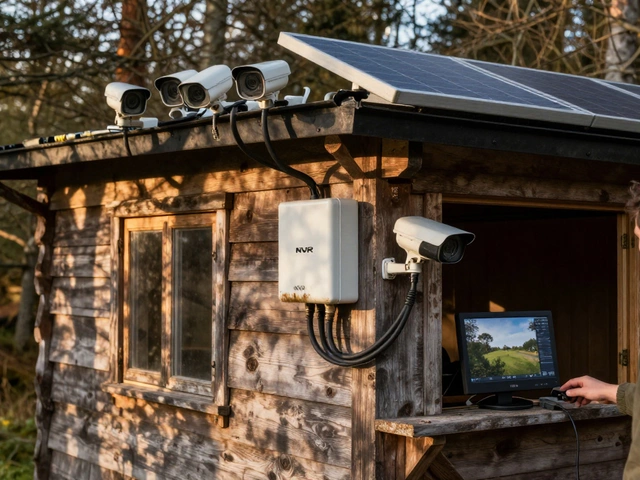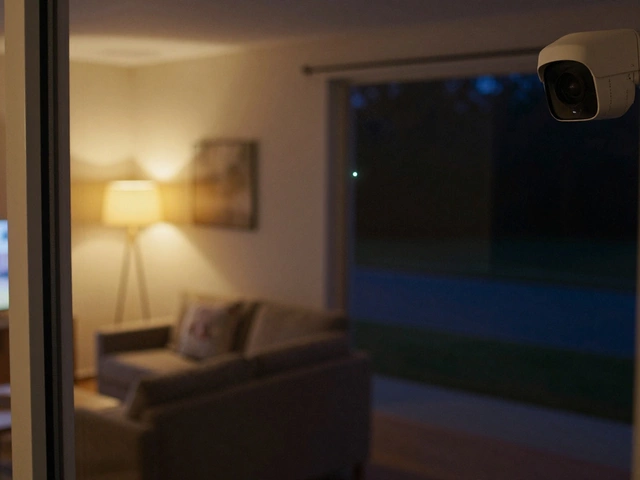Ever wondered if those dog bark alarms are as effective as a real pooch protecting your home? Well, they might not need feeding, but they sure know how to make some noise! These gadgets, designed to mimic an angry dog’s bark, aim to scare off potential intruders without relying on an actual furry friend.
Dog bark alarms are equipped with motion sensors that trigger recorded barking sounds when someone approaches your entryway. It's like having an invisible guard dog on duty 24/7. But do they actually fool intruders like a real dog would? Let's see what's under the hood of these clever devices and check if they're worth barking about.
- How Dog Bark Alarms Work
- Benefits of Dog Bark Alarms
- Limitations to Consider
- Tips for Choosing the Right Alarm
How Dog Bark Alarms Work
These nifty devices are pretty straightforward once you break it down. A dog bark alarm usually comes with a built-in motion detector. When someone steps into its detection zone, it triggers the pre-recorded sound of a dog barking, designed to startle any unwelcome visitors. For homeowners wanting the illusion of a watchdog without the responsibility, this simple technology can be quite appealing.
The alarm's range can vary, but typically, it covers about 15 to 50 feet. Some advanced models allow you to adjust the range and sound volume. That's handy if you want to avoid annoying the neighbors with unnecessarily loud barks.
"Dog bark alarms offer a pet-free way to secure a property, and they're particularly effective in urban areas where loud noises can be startling," says security expert Lisa Tran.
On the tech side, some bark alarms come with additional features like remote controls, multiple sound options, and even settings to match the barking to specific breeds for added realism. Dodge City Electronics, a popular electronics supplier, has noted a 20% increase in sales of these devices over the past year, showing a growing trend in their adoption.
Key Components and Setup
Setting up your dog bark alarm isn't rocket science. Position the unit facing the area you wish to monitor, ensuring it's away from heavy branches or anything that might falsely trigger the sensor. Plug it in, or if it’s a battery-operated model, ensure the batteries are fresh. Mount higher up for best detection range.
- Ensure the sensor is unobstructed.
- Test the sensor range and adjust accordingly.
- Customize settings such as volume and bark type if the model supports it.
Incorporating a dog bark alarm can be a valuable part of a layered security setup, especially if paired with other measures like cameras or traditional alarms. In essence, it can provide that initial alertness factor to deter potential intruders, capitalizing on the universal wariness of an attentive canine.
Benefits of Dog Bark Alarms
Let's dive into why dog bark alarms might be just what your home security needs. These nifty devices offer a range of perks that might surprise you.
1. Cost-Effective Security
Compared to installing a full-fledged security system, these alarms are easy on the wallet. You're not just saving on equipment but also avoiding those pesky monthly monitoring fees. It's an affordable step to improve your home security without breaking the bank.
2. Low Maintenance
Unlike owning a real dog, you won't need to worry about feeding or walking your dog bark alarm. With minimal upkeep, these devices provide peace of mind without any added responsibilities. Just plug them in, set them up, and they're good to go!
3. Deterrent to Intruders
The sheer sound of a barking dog can send chills down a burglar’s spine. Many intruders would think twice before messing with a house that appears guarded by a dog. The dog bark alarms mimic these sounds effectively, potentially sending would-be burglars running in the opposite direction.
4. Versatile and Adaptable
Whether you've got a sprawling mansion or a cozy apartment, there's a dog bark alarm fit for your needs. With a variety of models that come with different features, like volume control and motion sensitivity adjustment, you can tailor them to suit your specific environment.
| Benefits | Cost | Maintenance |
|---|---|---|
| Traditional Alarm System | High | Requires Regular Checkups |
| Dog Bark Alarm | Low | Minimal Maintenance |
With all these benefits wrapped into one small device, it's easy to see why dog bark alarms are gaining popularity among pet-friendly homes. They might not wag their tails, but they sure get the job done!

Limitations to Consider
While dog bark alarms can be handy, they aren't flawless. First off, their biggest weakness is the reliance on recorded barks, which means that savvy burglars could catch on to the trick, especially if they visit the area more than once. A real dog varies its response over time, and these alarms simply can't compete with that authenticity.
Another issue is their dependency on power. Most of these gadgets either need a constant power supply or regular battery changes. A power cut or a dead battery could leave your house silent and vulnerable. Plus, if you happen to travel frequently, keeping up with battery maintenance could be a hassle.
False Alarms
False alarms are another thing you might face. Imagine your dog alarm barking every time the neighbor's cat strolls by! If your alarm is too sensitive or improperly calibrated, you might find yourself with a barking door every few minutes, which can annoy you and your neighbors.
Coverage Limitation
These alarms tend to have a specific range, typically limited to one entry point. That means if you have multiple access points or a larger property, you'll need several alarms, which can get costly and complicated to manage.
Legal Considerations
Another thing to watch out for is local noise ordinances. Some areas have restrictions on noise levels, and although a dog bark isn't as loud as a siren, continuous barking might land you in hot water with local authorities.
Finally, while a barking alarm can deter some intruders, seasoned burglars might still test the waters to ensure the "dog" poses no real threat. So think of it as one piece of the security puzzle rather than a standalone solution.
| Limitation | Potential Solution |
|---|---|
| Recorded barks | Combine with other alarms or real dogs |
| Power dependence | Use a backup power source or regular checks |
| False alarms | Adjust settings or sensitivity |
| Range issues | Consider multiple units or alternate security measures |
In the end, it’s crucial to weigh these limitations against the benefits to see if dog bark alarms are the right match for your home security needs.
Tips for Choosing the Right Alarm
Picking out the best dog bark alarms doesn't have to be a head-scratcher. Here are some tips to guide you in making a choice that suits your needs and keeps your home secure.
1. Consider Your Home Size
First things first, think about where you plan to install the alarm. Is it a small apartment or a two-story house? Some alarms have more powerful sensors and speakers, perfect for covering larger areas. Make sure the range matches your home's needs.
2. Sensor Accuracy and Range
The strength of your alarm's motion sensors is key. You want an alarm with good sensor accuracy that won't just go off when a leaf blows by. Check the range too, as different models have varying detection distances.
3. Quality of the Bark Sound
It's crucial that the bark sounds realistic enough to fool potential intruders. Opt for pet-friendly alarms that offer natural-sounding barks, preferably ones mimicking large, intimidating dogs.
4. Ease of Installation
No one wants to struggle with a tangled mess of wires or a complicated setup. Many modern dog alarms offer wireless installation, with plug-and-play simplicity. Check user reviews for insights on how easy the setup process is.
5. Additional Features
Some alarms offer nifty extras like remote controls, adjustable volume, or even smartphone integration. Think about what features would make life easier for you and be on the lookout for them.
6. Budget and Brand Reputation
Finally, consider your budget. Prices can vary widely, so determine how much you're willing to spend. It's generally worth the investment to choose a reputable brand, known for quality and durability, rather than going for the cheapest option. This is your home security, after all!
With these tips, you should be well-equipped to choose a dog bark alarm that keeps your space safe and sound. Don't forget to do a little research and read reviews, as real user experiences can often reveal unexpected pros and cons of different models.


